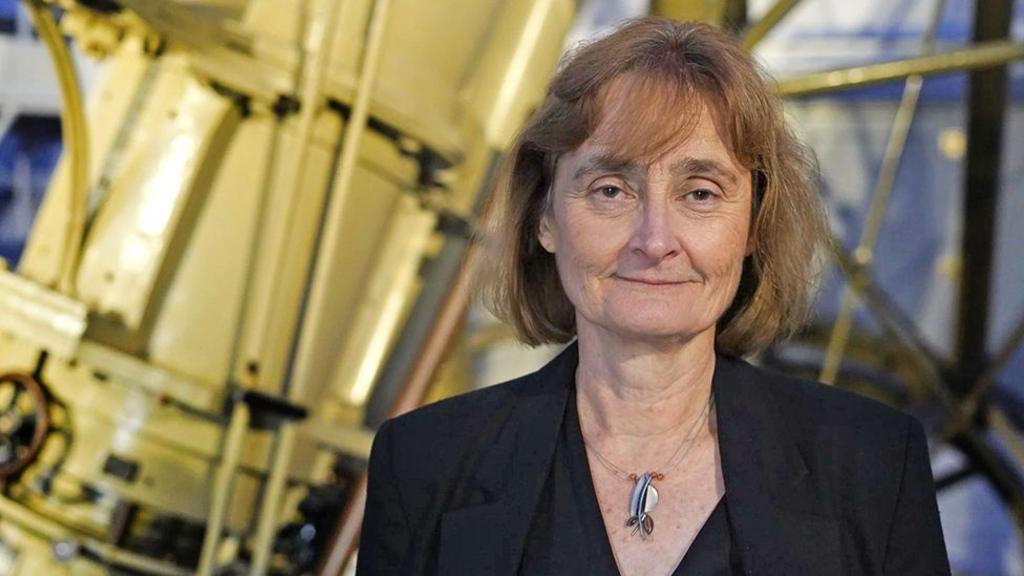Astronomer Prof. Michele Dougherty’s passion for space was ignited by her father’s telescope, despite not studying science in secondary school.
Now, in a historic appointment, she is the first woman to be named the UK’s Astronomer Royal in the role’s 350-year history. She is also a key member of the team sending probes to Jupiter’s icy moons.
Speaking with BBC News, Prof. Dougherty expressed her hope that her appointment as the official advisor to King Charles III on astronomical matters will inspire more women and girls to pursue careers in science.
The newly appointed Astronomer Royal also emphasized her intention to use her position to “open people’s eyes” to the wonders of space.
“I want to engage with the public, excite them about what we do in astronomy, but also make it clear how important what we do is to the UK economy,” Prof. Dougherty stated.
Prof. Dougherty is actively involved in a groundbreaking space mission: a European Space Agency probe to Jupiter’s icy moons, aimed at determining their potential to harbor life.
“It would be surprising if there wasn’t life in our solar system,” she remarked with a laugh, displaying the enthusiasm for which she is known.
Her fascination with Jupiter began at the age of 10 when she, her sister, and her father constructed a telescope through which she first viewed the planet.
“That was when I got my first view of Jupiter and four large moons, never thinking I’d end up sending instruments on a spacecraft there,” she recalled.
“I’m having to pinch myself at the thought of it and I’m having to pinch myself at the fact that I’m now Astronomer Royal!”
Prof. Dougherty’s achievement is particularly noteworthy given that she did not study science at secondary school in South Africa, where she grew up.
“I had a choice between schools. One of them taught science, but none of my friends were going to it,” she explained. “So as a young 13-year-old, I thought, I want to go with my friends.”
However, her exceptional aptitude for mathematics secured her admission to a science course at university.
“The first couple of years were hard. It was like learning a new language,” she admitted.
She persevered and eventually came to the UK, establishing herself as one of the nation’s leading space scientists, demonstrating remarkable courage and talent.
“I said yes to things I didn’t know how to do, and I learned as I went,” she stated.
The role of Astronomer Royal dates back to 1675 with the establishment of the Royal Observatory in Greenwich. John Flamsteed from Derby was the first to hold the title, tasked primarily with advising the king on using the stars to improve navigation at sea.
Dr. Louise Devoy, the observatory’s senior curator, noted that the role has evolved over time to become one of the most influential scientific voices in the country.
“By the 1800s the Astronomer Royal started to be called upon to act as a government advisor, so that may be to advise on the railways or bridges or telegraphy, a whole range of topics beyond astronomy,” she explained.
“If we fast forward to the 20th Century, it is more about developing international collaborations, which is why you have British astronomers working in telescopes in Chile, the Canary Islands and even the James Webb Space Telescope.”
Over the past three and a half centuries, 15 men have served as the most senior astronomer for the UK. Prof. Catherine Heyman has held a similar position as Astronomer Royal for Scotland since 2021 at the Royal Observatory in Edinburgh.
She expressed her delight at Prof. Dougherty’s appointment.
“For the last 350 years the title of Astronomer Royal has been held by a white male astronomer, and that kind of reflected what the astronomical community has looked like for the last few centuries. But things are changing,” she stated.
“Science is becoming more diverse, which it needs to be if we want to answer these big questions, and I’m absolutely delighted now that the two Astronomers Royal across the UK are female, reflecting the fact that science is for everyone.”
Prof. Dougherty does not wish to overemphasize the fact that she is the first woman to hold the UK-wide post, but she hopes it will inspire others to follow in her footsteps.
“I think it is important. I think when young children in particular see someone that looks like them doing a job they think they would never get an opportunity to do, it changes their mindset a little,” she told BBC News.
Prof. Dougherty witnessed this firsthand during her tenure as head of the physics department at Imperial College from 2018 to 2024. During that time, the percentage of first-year female undergraduates increased from approximately 19% to 25%.
“Not a huge change,” she said, “but there was a positive change. And I think it’s because students saw that I was in a role that they might aspire to in the future”.
Sign up here to receive our weekly newsletter highlighting uplifting stories and remarkable people from around the world.
The new group will run alongside an existing service which allows trans and non-binary people to take part
Events like cocktail making and spa days are set up to help women meet new people in their area.
Former India captain Mithali Raj tells BBC Sport how a run to the World Cup final in 2017 and the launch of the Women’s Premier League has seen women’s cricket rise in the country.
Helene, abducted aged 17, is among thousands of women attacked as gang violence spreads in Haiti.
Ruth says treatment for her alopecia helped get her confidence back to return to swimming.

